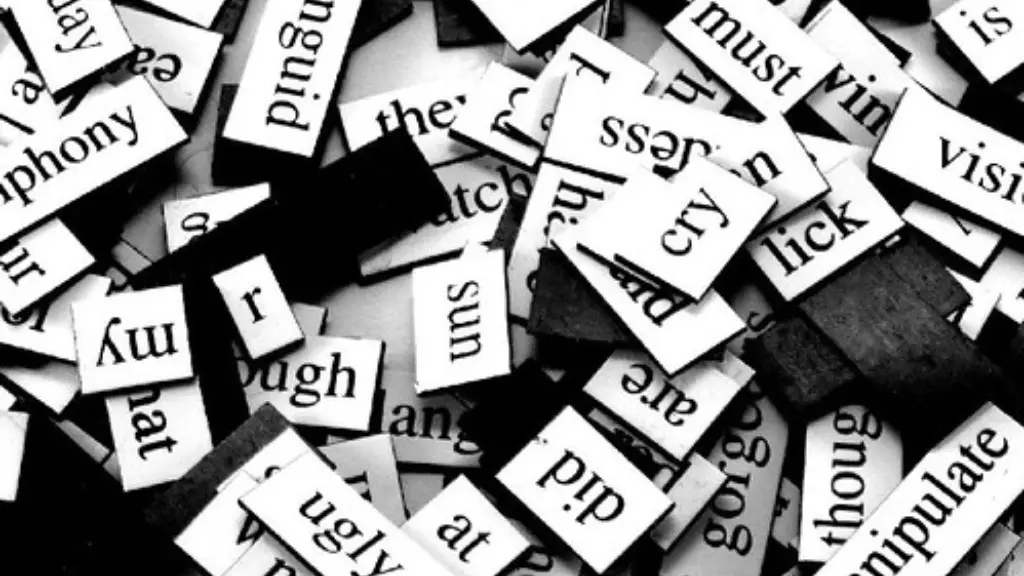Poetry has been praised, revered, and studied for centuries, yet there remains something of a mystery surrounding what it is exactly, and what it is meant to do. Interestingly enough, it can be all of these things to each individual, while also managing to contain a deeper universal meaning.
At a basic level, poetry is a way of processing and connecting with thoughts and emotions. Great works of poetry oftentimes capture common experiences, universal emotions, and shared truths in a manner that is heartbreakingly beautiful. It can begin as a cathartic outlet for the writer, a way to make sense of struggles and triumphs and allow the author to better understand their place in the world.
For the reader, poetry can serve a variety of purposes. Firstly, it can transport them away from current reality and immerse them in a world unique to the poem. Secondly, it can bring understanding and comfort as readers discover feelings, fears, and experiences articulated beautifully and with nuance. Lastly, poetry can act as a source of guidance and inspiration, as it encourages readers to find their own beauty amidst life’s challenges.
The emotive power of poetry comes in part from its inherent musicality. Its flow and rhythm are quintessential to its impact on the reader; the combined effect of words phrased in specific ways hits a feeling point deep within their innermost psyche.
The impact of poetry on society is pervasive. It can amplify societal injustices through protest poems, rouse political reform through its creative insight, revive dying languages, document cultural history and identity, sway political opinion, and influence the way people think about the world around them.
From years past, to present day, poetry remains very much alive. With the advent of technology, it has become an even more versatile form of expression than ever before; poets ‘slam’ their verses in bars, post their words electronically, and use spoken word to share their stories.
Throughout the years, poetry has responded to the ever-changing world it inhabits and will very likely continue to do so in the future. Its ability to accurately capture innermost thought and emotion make it a constant source of understanding, comfort, guidance, and inspiration.
Poetry as a Tool for Mental Well-Being
It may be difficult for some to connect with their emotions, particularly for those with mental health issues. By turning to poetry, individuals can express their feelings and gain clarity through articulating their experiences in a creative, often liberating manner.
Poetry can empower, especially for those lacking in an emotional language. It can help build self-esteem and provide someone with an understanding of their own potential; possibly even sparking an internal dialogue, furthering the healing process. It enables people to express the feelings and ideas they have been unable to put into words while providing a safe space to investigate all endeavors.
Researchers involved in a study into the mental health benefits of writing poetry state that ‘Poetry promises a way of engaging with our emotions safely, through metaphor, symbol and image rather than through confrontation’. The use of metaphor allows the exploration of innermost pain and horror without exposing someone via excessive detail, which may be triggering and overwhelming. Poetry enables people to ‘shift emotional material’ while still offering comfort to a reader or the writer themselves.
Sparking Conversation and Activism
By providing a unique artistic perspective, writers from all walks of life are able to amplify their feelings and views, sparking conversations on larger topics such as identity, faith, systems of oppressions, racism, and gender/sexuality issues.
The protest poetry of the twentieth century has served to empower the suppressed and marginalized, with writers looking to break barriers and shape society. The call for social and political reform has been personified in the words of poets such as Langston Hughes, Audre Lorde, and more contemporary activists such as Terisa Siagatonu and Amenda Gaccione.
The ability of poets to express the intensity of emotions attached to these causes, as well as narrating the entanglements of society, has been influential in revolutionary movements throughout history.
Primarily written to grab attention and provide a sense of solidarity, the poetic voice is a powerful tool. It offers an audience the opportunity to explore different realms of understanding and the application of it in the world today. It provides an escape route, allowing people to break away from their current realities and enter the poet’s world.
Unifying Through Language and Experience
Universal themes often resonate with a wide reader base, regardless of ethnicity, origin, class, culture, religion, and gender. Poetry encourages ‘collective reading’ of topics previously unexplored, bringing together a mixture of styles, genres, ideas, and dreams. It is highly likely that readers may find something in common with the poem, providing a sense of identity and togetherness, which unites people from varying walks of life.
Sharing topics that have been alluding the human voice, in a way that has not been done before, creates a fascinating means of connecting and exploring ideas. Words assembled in a way that creates vivid images can reach people that are both similar and different to the author, allowing them to experience life as someone else.
Ultimately, it is a great form of self-expression and communication. Its lyrical properties allow someone to comprehend and process inner dialogues, while its narrative style enables the writer to share life’s experiences with others. Together, poetry can create a space of unity and intimacy.
Exploring New Meanings and Reflection
Great works of poetry have been known to stand the test of time, inspiring new generations and universities of thought for centuries. This is due to their ability to remain open to interpretations and to influence the course of history.
Often, it is not just the words themselves that are important but the stories, emotions, and ideas attached to them. By exploring a greater meaning that can change and grow, readers and writers can gain insight and appreciation for not just the poem, but life itself.
In many instances, poetry can also serve as a reflection of an individual’s life and experiences. By accessing old works, writers can gain a unique perspective and examine any underlying issues or thoughts at a deeper level than previously before.
Ultimately, poets are able to further expand on the stories of their lives, leaving behind a legacy for future generations to learn, understand, and appreciate.
A Tool for Engaging with Nature
Nature is a major source of poetic inspiration, and as such it is able to offer a unique outlook. Using the outdoors as a platform for thoughtprompts stimulation, poets explore the ideas of life, mortality, resilience, and change.
At its simplest, poetry can celebrate the beauty of nature , but at its deepest, it can provide a glimpse at the very soul of nature’s power and beauty. Nature provides a sense of peace and comfort, while also encouraging creativity and exploration.
The imagery of nature often gives us an indication of how much beauty there is both in the natural world and within ourselves. The nature of poetry is to capture these moments in unexpected ways and to share them with others.
Poetry has allowed many to consider the significance of their relationship between themselves and nature, encouraging understanding and appreciation. As poet Edna St Vincent Millay said: ‘When I go out of doors, I wonder / What I can do, to please God more.’
Conclusion
In conclusion, poetry is a unique medium of expression, equally capable of building mental well-being, sparking conversations and activism, uniting people through language and experience, and exploring new meanings and reflection. It can also be used to engage with nature and the beauty both within it and ourselves.
Whether used as a medium of expression, a tool of political critique or even a source of comfort, poetry is an undying orator of human emotion.





